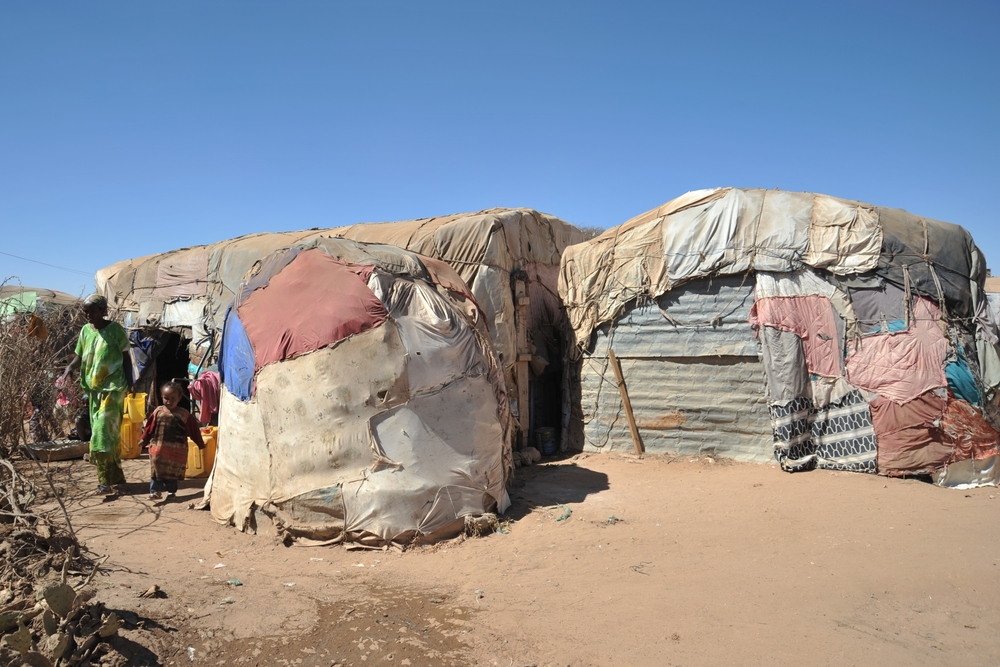
CANBERRA, Australia – Papua New Guinea authorities on Thursday ratcheted up pressure on more than 300 asylum seekers to abandon a decommissioned immigration camp, where refugees reported their shelters, beds and other belongings have been destroyed.
Police Chief Superintendent Dominic Kakas said 50 police and immigration officials entered the Manus Island camp Thursday morning and persuaded 35 of the 378 men there to leave for alterative accommodation in the nearby town of Lorengau.
Shen Narayanasamy, a human rights campaigner for the activist group GetUp!, estimated 40 men left Manus by bus and some of those reported being forced to leave.
Water, power and food supplies ended when the Manus camp officially closed on Oct. 31, based on the Papua New Guinea Supreme Court’s ruling last year that Australia’s policy of housing asylum seekers there was unconstitutional.
But asylum seekers fear for their safety in Lorengau because of threats from local residents.
Kakas said force would not be used to empty the squalid Manus Island camp.
“There’s no raid. It’s an ongoing negotiation with the refugees,” Kakas told The Associated Press. “It’s not an eviction exercise. We’re telling them to move because there’s water, food and proper shelter on the other side.”
Kakas denied reports from within the camp that authorities burnt and destroyed asylum seekers’ property in an effort to persuade them to leave.
Australian Immigration and Border Protection Minister Peter Dutton revealed in a radio interview the police operation in the camp.
“It’s outrageous that people are still there and they’ve trashed the facility. They’re living in squalor,” Dutton told Sydney Radio 2GB.
“But there is an operation involving police at the centre this morning. It’s like the tenant that won’t move out of the house when you’ve built a new house for them to move into,” he added.
Sudanese refugee Abdul Aziz Adam tweeted that police arrested Iranian refugee and journalist Behrouz Boochan.
Boochan had earlier tweeted: “They are destroying everything. Shelters, tanks, beds and all of our belongings.”
“Right now are shouting at us to leave the prison camp,” he added.
Kakas said he had no information about any arrests.
Amnesty International cited reports of immigration officials entering them camp armed with sticks and knives.
“The risks of serious injury if the authorities use force now is completely foreseeable,” the London-based rights group’s researcher Kate Schuetze said in a statement.
Authorities have previously made conditions tougher in the camp by emptying drinking water tanks and removing shelters. Deadlines to abandon the camp have passed without authorities taking action.
Australia pays Papua New Guinea, its nearest neighbour, and the tiny Pacific nation of Nauru to hold thousands of asylum seekers from Africa, the Middle East and Asia who have attempted to reach Australian shores by boat since mid-2013.
The United States has agreed to resettle up to 1,250 refugees among of them under a deal struck by former President Barack Obama’s administration that President Donald Trump has reluctantly decided to honour. So far, only 54 have been accepted by the United States.
Prime Minister Malcolm Turnbull dismissed asylum seekers’ fears for their safety in Lorengau, accusing them of trying to pressure Australia into resettling them by refusing to move from Manus.
“They think that … in some way they can pressure the Australian government to let them come to Australia. Well, we will not be pressured. We will not outsource our migration policy to people smugglers,” Turnbull told reporters.
“People on Manus should go to the alternative places of safety with all the facilities they need, they should do so peacefully and they should do so in accordance with the legal directions of Papua New Guinea,” he added.